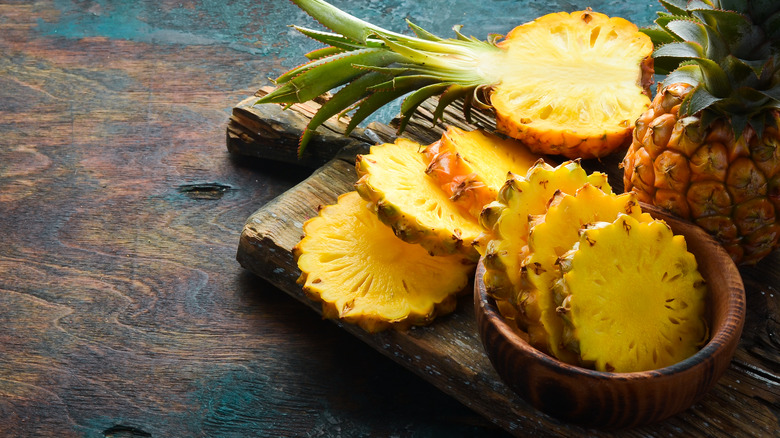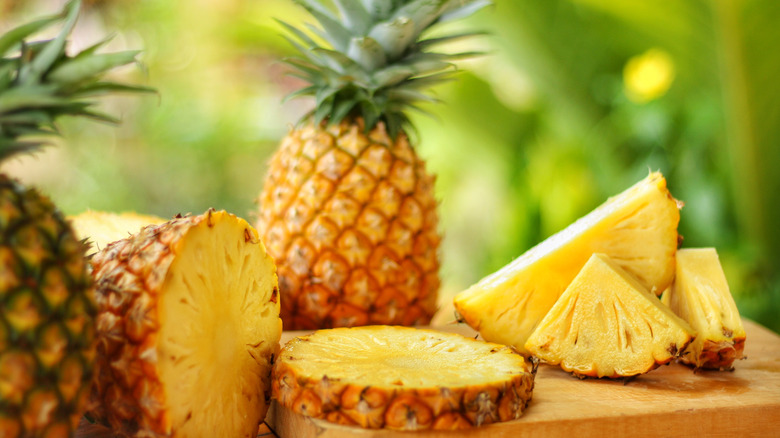How Pineapples Surprisingly Affect Your Taste Buds
Maybe this has happened to you: you've set out to buy a perfectly ripe pineapple, lovingly selected the most fragrant fruit you could find, painstakingly peeled, cored, and sliced it, only to pop a juicy chunk into your mouth ... and find that your tongue's on fire. According to Dole, which has been in the pineapple business since 1901, this phenomenon is a common one, with many who enjoy the fruit afflicted by a burning sensation to their taste buds. But why does this happen?
As Dole explains, the sensation, which might be unpleasant, is a completely normal one that's owed to pineapple's chemical makeup. The fruit contains an enzyme known as bromelain, which breaks down protein — one reason why, besides its flavor, pineapple is often included in marinades, since it tenderizes meat (via The Spruce Eats). Read on to learn more about this enzyme, and the effect it can have on your mouth.
Bromelain isn't all bad news
According to Dole, the effect that the enzyme bromelain can have on your taste buds is so unpleasant because the enzyme is actually doing its job, which is digesting protein. As such, consuming pineapple can actually produce the feeling that the fruit is eating away at your tongue and the roof of your mouth — because, essentially, it is.
However, bromelain has a myriad of positive effects, too. When it was noticed that indigenous peoples in South and Central America used pineapple for medicinal purposes, bromelain was eventually discovered in the stem and core of the fruit, and today is extracted for use in reducing inflammation, treating swelling, aiding digestion, and soothing wounds and bruises (via the National Center for Complementary and Integrative Health).
Want to enjoy the taste of pineapple — and reap its benefits — without suffering from a burned tongue? Spoon University explains that since the majority of bromelain is concentrated in the core of the fruit, being careful to cut out and not consume any of the core will reduce that burning sensation. Delish, meanwhile, also suggests rubbing salt over the surface of cut pineapple, triggering the enzymes and reducing their effect by the time the delicious fruit reaches your mouth.

